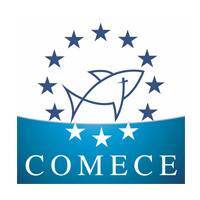
Obsah
Obsah
Portál

COMECE greatly values today’s EU Council’s Conclusions on intolerance, discrimination and violence on the basis of religion or belief as a good step in the right direction. In paragraph 2 the Council condemns the acts of violence against Christians and their places of worship, Muslim pilgrims and other religious communities. Yet the security and survival of Christian communities, especially in the Middle East, requires concrete action.
Brussels (BE): At its meeting on 31st January, the Council of Ministers failed to reach a conclusion due to internal wrangling among the Ministers over a specific reference to recognizing Christians as the main targets of religious persecution in various countries and territories, such as, Iraq, Egypt, Pakistan, Nigeria, Cyprus, Philippines, Iran, India and Vietnam. Indeed, today’s positive agreement follows the chorus of disapproval by several EU Member States together with individual MEPs over the negative outcome of the previous meeting.
COMECE now believes that the Council of Ministers should translate these words into concrete action in order to guarantee that Christian and other religious minorities all over the world can enjoy the much needed fundamental rights and freedoms, including freedom of religion, that they are currently deprived of. This echoes the concern of Pope Benedict XVI when on 1st January he said, that governments needed to back up their words and make a concrete and constant commitment to bring anti-religious violence to an end.
In today’s meeting of the Council of Ministers, freedom of religion has once again been reaffirmed. However, COMECE hopes that the EU will implement its conclusions in significant political action, and thus help to eradicate the stark sectarian divide, the war of cultures and religions, and the wave of religious-cleansing.
Furthermore, Baroness Ashton, the EU High Representative for Foreign Affairs and Security Policy, could make provision in the new European External Action Service to have a permanent institutional approach to protect freedom of conscience and religion around the world.
The effective commitment to fundamental rights, including religious freedom, is in itself the path to peace. Once fully realised, it would pave the way for peaceful and open societies, where people would live together in a neighbourly way and where different religions would collaborate in working for greater human freedom.
